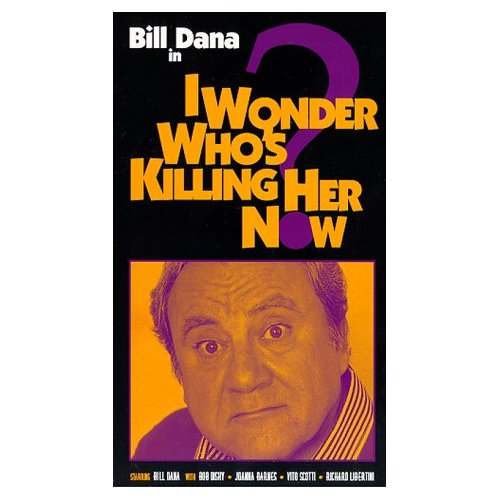THE YIN AND THE YANG OF MR. GO (1970). Directed by Burgess Meredith. Starring James Mason, Jeff Bridges, and Burgess Meredith.

A bizarre spy-movie spoof noteworthy primarily for its impressive cast and for being the second (and final) feature film directed by the brilliant character actor Burgess Meredith (21 years after his first directorial effort, The Man on the Eiffel Tower), The Yin and the Yang of Mr. Go is truly a unique viewing experience. James Mason stars as Yin Yang Go, a stereotypical Asian diabolical mastermind in the Fu Manchu tradition--however, no attempt is made to disguise his distinctive British accent, nor is make-up used to give his eyes the cliche appearance. I initially thought it would be explained that the character was, in fact, an Englishman who had immersed himself in the trappings of Chinese culture, but when he does discuss his origins, the revelation is even more laughable--he reminisces about his youth as "a half-Mexican, half-Chinese boy." That's right, it's two unconvincing ethnic impersonations in one.
Young Jeff Bridges (credited as "Jeffrey Bridges" in one of his earliest roles) co-stars as a struggling young author and James Joyce devotee, fortuitously named Nero Finnegan. The impoverished writer is not above a bit of hustling to supplement his income, and becomes enmeshed in Go's schemes when a homosexual encounter is used to blackmail a British scientist (Peter Lind Hayes) who has developed a top-secret missile defense system (predating Ronald Reagan's "Star Wars" project). Even after paying off Finnegan for his part in the blackmail, Go ensures his continued cooperation by having his henchwoman (Clarissa Kaye, who would go on to marry James Mason the year after this picture was made) kidnap Finnegan's girlfriend Tah-Ling (Irene Tsu). Meanwhile, the CIA has assigned one of their top agents (Jack MacGowran) to get close to Finnegan by posing as a publisher interested in the young author's work. It all gets even more muddled from there, even before we get to the plot device of the spirit of Buddha instigating a massive personality shift in one of the main characters.
The movie is an embarrassing yet fascinating time-capsule of cringe-worthy stereotypes--cliche Asians (aside from James Mason, director Burgess Meredith appears in a supporting part as a wise old herbalist/acupuncturist), cliche homosexuals (Hays), cliche lesbians (Kaye), cliche Irishmen (MacGowran), and so on and so forth. One hopes that Meredith intended it as a satire of such typecasting. One hopes.
Who's Leaving This Off Their Resume?
While Bridges, MacGowran, and most of the rest of the cast play their parts with tongues planted firmly in cheeks, James Mason appears determined to bring his traditional dignity and gravitas to the role of Mr. Go--a decision that emphasizes the absurdity of the character. Is it a deadpan comedic performance, or a laughable dramatic one? See it for yourself (if you can find it), and you make the call.
Another performance I feel I should point out: Broderick Crawford makes a cameo as the CIA chief, angrily barking orders and delivering exposition in tacked-on scenes added after the initial shooting was complete. Having nothing to do with the rest of the movie yet saddled with the task of tying it together, Broderick tries gamely but is utterly lost.
I also want to mention the silly but catchy soundtrack, especially the opening-credits track which strings together one Zen cliche after another ("When your meditation is interrupted by one clapping hand")...well, see and hear for yourself.
Labels: vhs vednesday




